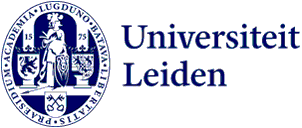
Greater job satisfaction thanks to a career coach: ‘All the puzzle pieces fell into place’
You need not be completely miserable in your current job to start a discussion about your professional development. And if internal career coaching still feels like too big a step, you can take a look at the university’s Career Platform instead.

When discussing career coaching, you don’t generally expect to hear mention of the crime series The Sopranos. ‘Obviously, I don’t bring it up because of the mafia activities’, laughs policy officer Auke Visser, ‘but because the main character, Tony, saw a therapist every episode to talk through his week. At home, we used to say, “Actually, everyone should do that: regularly analyse what is and what isn’t going well with someone who knows about it”. That’s how I see career coaching too, but with the focus entirely on your own professional development.’
More mobility
Since he started at the university as an administrative officer in 2008, Auke has taken part in internal career coaching at HRM Learning & Development not once, but twice. If his then-supervisor had not pointed it out to him at the time, he might not even have known that the opportunity existed – or that participation is free for staff. ‘It’s quite difficult to approach a career coach of your own volition’, he says. ‘That’s why it’s so important that this is encouraged by management. The university wants more career mobility, but that kind of thing doesn’t happen automatically.’
In fact, Auke was not terribly unhappy with his job when he signed up for career coaching on the advice of his supervisor in 2011. ‘I had been thinking of becoming a human resources adviser for years, but I still had doubts: was that the job for me?’
Auke spoke with his career coach and took tests to see what other positions would suit him. He filled in some questionnaires himself, but for others he had to ask for input from colleagues, friends and family members. ‘It’s genuinely enlightening to be held up to a mirror like that and to learn how the people around you see you. I found the combination of discovering things myself and having others help me very valuable.’
New opportunities
The career choice test revealed ICT as the most suitable field, so, in consultation with his supervisor, Auke began an internship in functional management. ‘Then all the puzzle pieces fell into place. Without the career coaching, I probably would never have considered that option.’
On top of that, the internship led to all kinds of new opportunities. Afterwards, Auke was able to stay on as a functional manager. A few years later, when an opportunity for an HRM policy adviser position presented itself, he started talking to the career coach again. ‘I had doubts about returning to HRM. The coach helped me decide to go for it.’
Keep on moving
Staying on the move also fits with working at a university, he believes. ‘I think many of my colleagues don’t realise that it’s quite easy to do something different at our organisation. By doing so, you discover what really suits you and you not only develop yourself, but also help the organisation move forward. And how great is it that we have an in-house professional team that can help you with that?’
Auke wants to reassure colleagues who fear they are too busy for a coaching track. ‘If you’re given tasks that you enjoy and are also good at, it will actually save you time in the end – and, of course, give you greater job satisfaction. Both times with the coaches, I got out of it what I was hoping for: more self-awareness and a subsequent career that suits me even better.’

‘Take yourself and your development seriously’
Ine Alberts, career professional and personal effectiveness coach
‘Many people find it exciting when their supervisor advises them to have a pre-emptive talk with a career adviser. But in any case, you are important enough to pay attention to your own growth, development and job satisfaction. And an employer also benefits when people approach their work with enthusiasm and positive energy.’
Practical tests and tools
‘The Career Platform has all kinds of practical tests and tools you can use to take a close and easy look at your professional self. What do you like to do? What are your talents and how do others perceive them? This can also help you with other things, like preparing for your annual P&D interview. The platform also lists internal job vacancies. Who knows? You might be able to use your talents in another role at Leiden University. And should you decide you want to pursue your career elsewhere or should your contract end, you can use the platform to explore the job market. It is also a handy resource for information on how to present yourself as a potential employee, including tips for your CV, application letter or LinkedIn profile.’
World of difference
‘Above all, feel free to use the Career Platform to gain more self-understanding. And should you want to go a step further, you can also meet with a career coach with no obligation. Perhaps you have been in the same position for seven years, have just had children, or simply want to explore whether you can get more out of your current job. When people think of career coaching, they often think of “changing course”, but small steps – like a change in your job duties, an extra development task, peer feedback or an inspiring course – can make a world of difference. So are you itching for a change, or do you feel a little friction? Feel free to contact us. You are part of a large knowledge organisation, and that can be very busy. But an organisation as large as this one also offers many opportunities. Take yourself and your development seriously.’
Text: Evelien Flink
